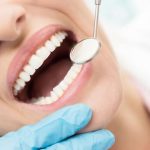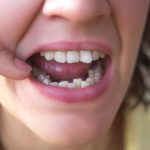Uncovering the Truth: Why Meth Causes Severe Teeth Decay
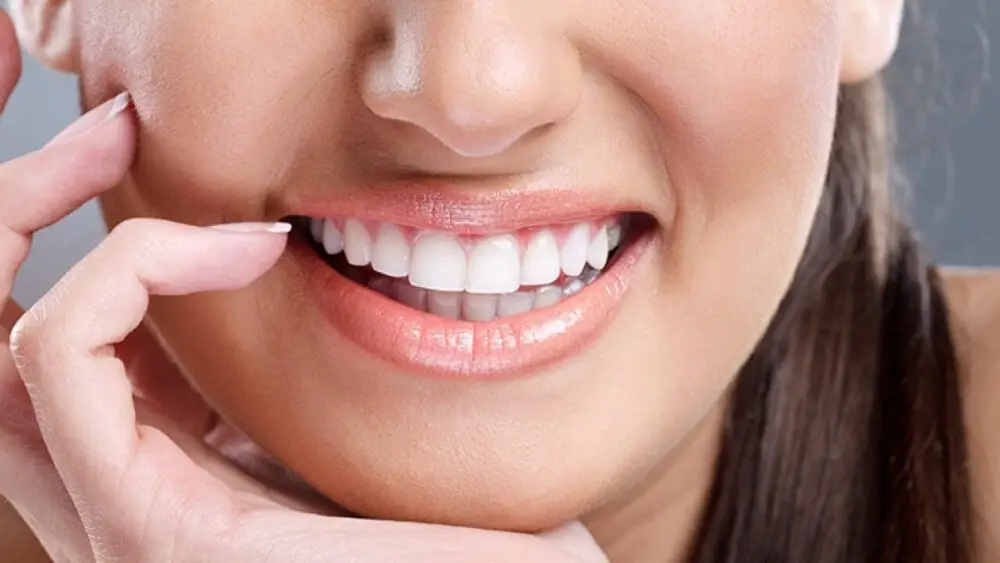
Methamphetamine, commonly known as meth, is a highly addictive and potent stimulant that has become a significant public health concern in recent years. Meth use has been linked to a range of adverse physical and mental health outcomes, including severe teeth decay, also known as \meth mouth.\ Meth mouth is a condition characterized by extensive and rapid tooth decay, gum disease, and tooth loss, and it can result in significant pain, infection, and other complications. Despite growing awareness of the link between meth use and teeth decay, many people are still unaware of the mechanisms behind this devastating condition. So why does meth use cause such severe teeth decay? The answer lies in the drug’s chemical composition and the behaviors associated with its use. Methamphetamine is a powerful central nervous system stimulant that increases the levels of neurotransmitters dopamine, norepinephrine, and serotonin in the brain. These neurotransmitters are responsible for regulating mood, attention, and energy levels, and their increased activity under the influence of meth results in intense feelings of euphoria, increased alertness, and decreased appetite. However, meth is also highly acidic and can cause significant damage to the mouth and teeth, particularly when used in high quantities or over extended periods. Additionally, the drug’s effects on appetite and oral hygiene can exacerbate this damage, leading to rapid and severe teeth decay.
Methamphetamine, commonly known as meth, is a highly addictive and illegal stimulant drug that affects the central nervous system. Meth abuse has become a major public health concern due to its severe impact on the user’s physical and mental health. One of the most visible signs of meth abuse is severe teeth decay, also known as \meth mouth.\ This condition is caused by the drug’s acidic properties, dry mouth, poor oral hygiene, and a lack of essential nutrients. Meth use can lead to tooth loss, gum disease, and other oral health problems, which can have a significant impact on the user’s overall health and well-being. Understanding the mechanisms behind meth-induced teeth decay is crucial to developing effective prevention and treatment strategies.
It is of utmost importance to understand the underlying causes of severe teeth decay in meth users. The devastating effects of meth use on oral health, commonly known as \meth mouth,\ are well documented, yet the precise mechanisms driving this phenomenon are not fully understood. This knowledge gap limits our ability to effectively prevent and treat this condition. By uncovering the truth behind meth mouth, we can develop targeted interventions that address the root causes of this problem. This may include education campaigns to raise awareness of the dangers of meth use, as well as more specialized dental treatments that can mitigate the effects of meth on oral health. Ultimately, a better understanding of the causes of severe teeth decay in meth users will help us to improve the health and wellbeing of individuals affected by this devastating addiction.
What is Meth?
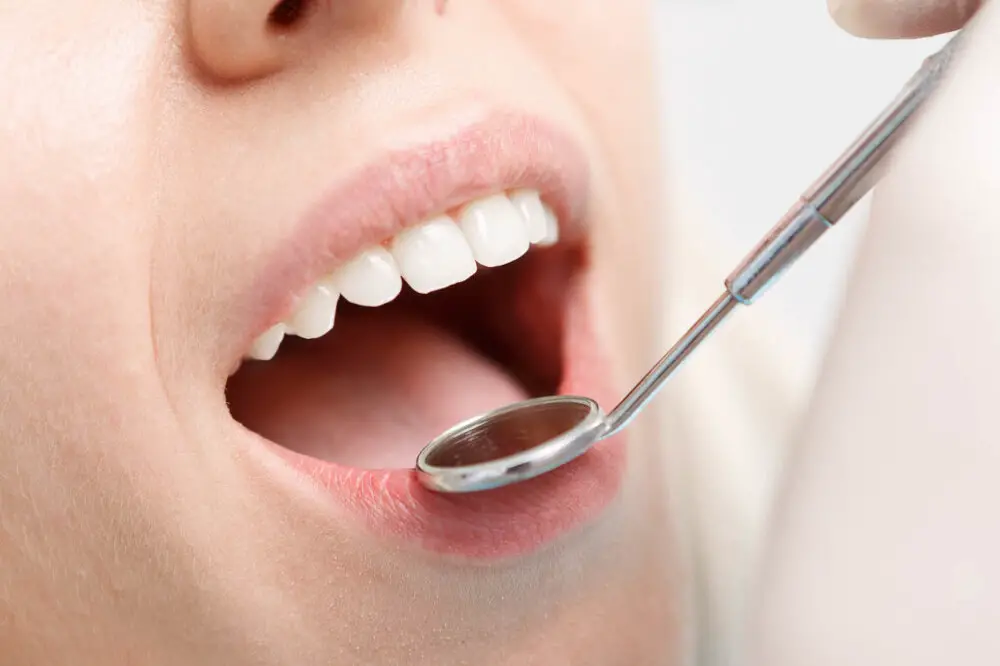
Methamphetamine, commonly known as meth, is a highly addictive synthetic drug that stimulates the central nervous system. Meth is usually snorted, smoked, or injected and produces a powerful and long-lasting high, making it a popular drug of abuse. The drug increases the level of dopamine in the brain, causing a rush of pleasure and energy. Meth also suppresses appetite, leading to weight loss and malnutrition. However, meth use comes with severe health consequences, including severe teeth decay, skin sores, and other physical and mental health problems. Meth causes severe teeth decay, also known as \meth mouth,\ due to its acidic nature and the drug’s impact on oral hygiene. Meth use decreases the production of saliva, which is essential for protecting teeth and gums from bacteria and other harmful substances. The lack of saliva results in dry mouth, which increases the risk of cavities, gum disease, and other oral health problems. Meth users also tend to grind their teeth and clench their jaws, leading to worn-down teeth, cracks, and decay. Additionally, meth users often neglect oral hygiene, such as brushing and flossing, due to the drug’s impact on their mental state and priorities. As a result, meth mouth is a severe and irreversible oral health condition that can lead to tooth loss, infections, and other complications.
Methamphetamine, commonly known as \meth,\ is a highly addictive stimulant drug that affects the central nervous system. It is typically smoked, snorted, injected, or swallowed and produces feelings of euphoria, increased energy, and heightened alertness. However, the use of meth can also have harmful effects on the body, including severe tooth decay. Meth causes dry mouth, which reduces the production of saliva and leads to the growth of harmful bacteria in the mouth. It also causes vasoconstriction, which reduces blood flow to the teeth and gums, making them more susceptible to decay and infection. Long-term use of meth can lead to extensive tooth damage, including cavities, gum disease, and even tooth loss.
Methamphetamine, also known as meth, is a highly addictive drug that can cause severe tooth decay and other dental problems. Meth users often experience a phenomenon called \meth mouth,\ which is characterized by broken, stained, and rotting teeth. Methamphetamine use causes a decrease in saliva production, which can contribute to the formation of cavities and gum disease. Additionally, the drug can cause users to grind their teeth, leading to further damage. Regular dental check-ups and good oral hygiene are crucial for individuals who use methamphetamine to prevent or mitigate dental problems.
The effects of meth on the body are devastating and far-reaching. Methamphetamine use can cause severe tooth decay and gum disease, leading to the loss of teeth and even the need for dentures. But the damage doesn’t stop there. Meth can also cause weight loss, skin sores, and an increased risk of infections like HIV and hepatitis. It can also lead to heart problems, including heart attacks and stroke, as well as brain damage and mental health issues such as psychosis and depression. The impact of meth on the body is undeniable, and it’s important to understand the dangers of this drug and seek help if you or someone you know is struggling with addiction.
How Meth Causes Teeth Decay
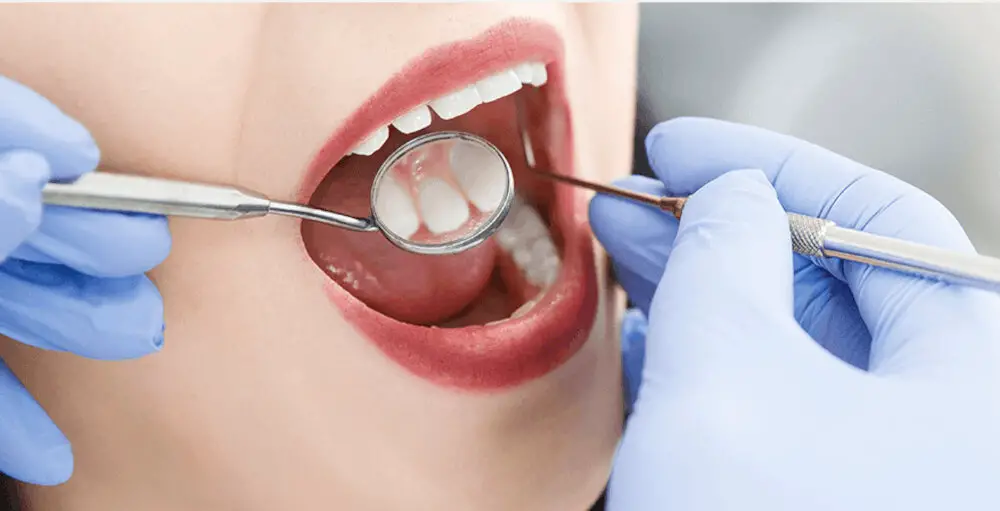
Methamphetamine, or meth, is a highly addictive drug that can cause severe damage to the teeth and oral health of those who use it. The drug works by stimulating the central nervous system, causing a release of dopamine and other chemicals in the brain that produce feelings of euphoria and energy. However, meth use also causes a decrease in saliva production, which can lead to dry mouth and an increase in bacteria growth. This combination of factors can lead to severe tooth decay, cavities, and gum disease. The effects of meth on teeth are often referred to as \meth mouth,\ a term used to describe the severe and rapid deterioration of dental health in meth users. The drug causes a variety of oral health problems, including tooth decay, gum disease, and tooth loss. Meth mouth is often characterized by broken, discolored, and rotting teeth, as well as bad breath and gum disease. The damage caused by meth use is often irreversible, and many meth users require extensive dental work, including extractions and implants, to repair the damage. In addition to the physical effects, meth mouth can also have a significant impact on a person’s self-esteem and overall quality of life.
Methamphetamine, commonly known as meth, is a highly addictive and illegal stimulant drug that affects the chemical makeup of the brain. Its chemical structure is similar to amphetamine, which causes the release of dopamine, a neurotransmitter that increases feelings of pleasure and reward. However, meth is much more potent and longer-lasting than amphetamines. Meth use can lead to a number of serious health problems, including severe dental decay, known as \meth mouth.\ Meth use causes dry mouth and an increase in acidity in the mouth, which can lead to erosion of tooth enamel and gum disease. Additionally, the drug can cause users to grind their teeth and neglect oral hygiene, which exacerbates the damage. The combination of these factors can lead to rapid and severe dental decay, often requiring extensive and costly dental work to repair.
Dehydration and dry mouth are common side effects of methamphetamine use, and are major contributors to the severe tooth decay that often accompanies the drug’s abuse. When a person is dehydrated, their body produces less saliva, which can lead to dry mouth. This condition can cause the mouth to become dry and sticky, making it difficult to swallow, talk, or even breathe properly. Additionally, saliva plays an important role in protecting teeth from decay by neutralizing harmful acids and washing away bacteria. Without enough saliva, the teeth become more vulnerable to decay, leading to cavities, gum disease, and other oral health problems. For meth users, the combination of dehydration and dry mouth can be particularly damaging, as the drug’s chemical properties can cause rapid tooth decay and erosion, leading to extensive damage and tooth loss.
Lack of dental hygiene while under the influence of methamphetamine is a major contributing factor to severe tooth decay. Meth users often experience a dry mouth, which reduces saliva production and leads to an increase in harmful bacteria. This, combined with poor oral hygiene habits such as infrequent brushing and flossing, creates a breeding ground for tooth decay. Additionally, methamphetamine use can cause users to grind and clench their teeth, leading to further damage and decay. The effects of methamphetamine on dental health can be devastating, causing tooth loss and severe pain. It is essential for meth users to prioritize dental hygiene and seek professional dental care to prevent irreversible damage to their teeth and overall health.
Signs and Symptoms of Meth Mouth
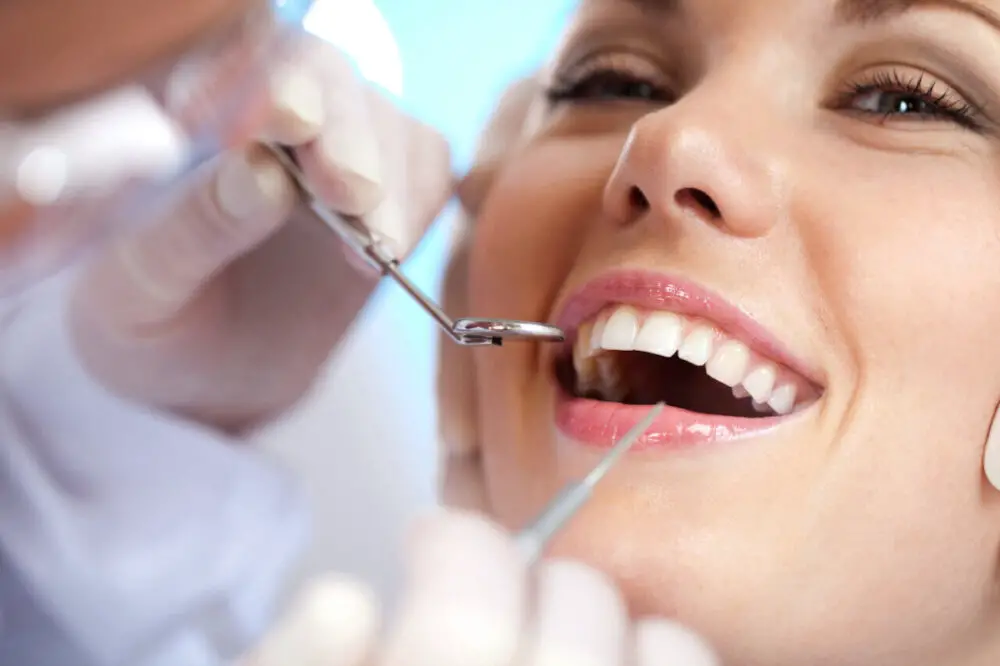
Methamphetamine, commonly known as meth, is a highly addictive drug that can cause severe damage to a person’s oral health. Meth mouth is a term used to describe the extensive dental decay and tooth loss often seen in people who abuse this drug. The signs and symptoms of meth mouth are numerous and can be easily identified by dental professionals. The most notable sign of meth mouth is severe tooth decay, which can lead to tooth loss and gum disease. Many people who use meth experience dry mouth, which reduces the amount of saliva in the mouth and makes it easier for bacteria to grow and thrive. This, combined with poor oral hygiene, can cause the rapid decay of teeth. Other symptoms of meth mouth include bad breath, cracked and broken teeth, gum disease, and mouth sores. In some cases, people may experience tooth sensitivity or pain when consuming hot or cold foods and drinks. If left untreated, meth mouth can cause permanent damage to a person’s oral health, which can be difficult and costly to correct.
Methamphetamine abuse can cause severe tooth decay, which is characterized by several visual signs. One of the most common indicators of teeth decay in meth users is the appearance of dark brown or black spots on the teeth. This discoloration is caused by the erosion of the tooth’s enamel, leaving it vulnerable to decay. In addition to discoloration, meth users may also experience tooth sensitivity or pain, along with swollen and bleeding gums. The teeth may also become chipped, cracked, or loose, and in severe cases, they may even fall out. These visual signs of severe teeth decay are a clear indication that methamphetamine abuse can cause lasting damage to a person’s oral health.
Methamphetamine, commonly known as \meth,\ is a highly addictive drug that can cause severe dental problems, also known as \meth mouth.\ Methamphetamine abuse leads to a variety of physiological and psychological effects, including tooth decay and gum disease. This decay is a result of the drug’s ability to reduce the production of saliva, which creates a dry mouth environment that allows bacteria to grow and thrive. Meth users often experience pain and discomfort associated with their dental issues, which can lead to difficulty eating, speaking, and sleeping. The damage caused by meth mouth is often irreversible and requires extensive dental treatment, which can be costly and time-consuming. It is essential to understand the severe consequences of methamphetamine abuse, including its devastating effects on oral health, to prevent further damage to individuals who may be struggling with addiction.
Severe teeth decay caused by Methamphetamine use is not just a physical problem but also has psychological effects. The loss of teeth can lead to social anxiety and low self-esteem, resulting in isolation and depression. Methamphetamine addiction can also cause a lack of personal hygiene and self-care, which can further deteriorate oral health. The physical pain and discomfort associated with severe teeth decay can create a sense of hopelessness and helplessness, leading to increased drug use and further damage to oral and overall health. Therefore, recognizing and treating severe teeth decay caused by Methamphetamine use is crucial not only for physical health but also for psychological well-being.
Treatment and Prevention of Meth Mouth

Meth mouth is a term used to describe the severe dental problems that people who use methamphetamine experience. Methamphetamine is a powerful and highly addictive stimulant that can cause a range of physical and psychological problems. The drug can cause the teeth to decay rapidly, and in some cases, the teeth may even fall out. Meth mouth is a serious issue, and it’s important to understand how to prevent and treat this condition. Preventing meth mouth is the best course of action. The most effective way to prevent meth mouth is to avoid using the drug altogether. However, if you or someone you know is struggling with addiction, there are several treatment options available. One of the most effective treatments for meth addiction is cognitive-behavioral therapy. This type of therapy helps individuals to identify the triggers that lead them to use drugs and teaches them how to manage those triggers in a healthy way. In addition to therapy, medications such as bupropion and naltrexone have been shown to be helpful in treating meth addiction. By getting the right treatment, individuals can overcome their addiction and reduce their risk of developing meth mouth. Treating meth mouth requires a multi-faceted approach. In some cases, teeth may need to be extracted or repaired, and individuals may require extensive dental work. However, simply fixing the teeth is not enough. It’s important to address the underlying addiction to prevent further dental damage. Individuals who have experienced meth mouth may benefit from counseling or support groups to help them stay clean and avoid relapse. Additionally, maintaining good oral hygiene is crucial for preventing further damage to the teeth. Regular brushing, flossing, and dental check-ups can help prevent the spread of infection and decay. By taking a comprehensive approach to treatment, individuals can recover from meth mouth and improve their overall health and well-being.
Methamphetamine, commonly known as meth, is a highly addictive drug that causes severe tooth decay, also known as \meth mouth.\ The damage is often irreversible and requires extensive dental treatments. The first step in treating meth mouth is to stop using the drug. Once the patient is clean, the dentist can begin a comprehensive treatment plan that may include fillings, root canals, crowns, and even extractions. In some cases, patients may require full mouth reconstruction. The goal is to restore the patient’s oral health and improve their overall quality of life. However, it is important to recognize that the best way to prevent meth mouth is to never use the drug in the first place.
Quitting meth use is crucial for dental health as methamphetamine abuse can cause severe teeth decay. The drug’s corrosive nature damages the tooth enamel, making it more prone to cavities and, in some cases, leading to tooth loss. Meth use also causes xerostomia or dry mouth, which reduces saliva production, leading to dryness and bacterial growth, causing further tooth decay. Moreover, meth users tend to consume sugary drinks and snacks, exacerbating the damage caused by the drug. Therefore, quitting meth use is essential for maintaining good dental hygiene and avoiding severe oral health problems.
Methamphetamine use is a major cause of severe tooth decay and oral health problems. To avoid these issues, preventative measures should be taken. Meth users should maintain good oral hygiene practices such as brushing and flossing teeth regularly, using fluoride toothpaste, and rinsing mouth after drug use. Drinking plenty of water and chewing sugar-free gum can also help to stimulate saliva production and prevent dry mouth. Avoiding sugary and acidic foods and drinks can help to reduce the risk of tooth decay. It is also important to schedule regular dental check-ups and cleanings to detect any oral health problems early on. By implementing these preventative measures, meth users can maintain their dental health and avoid the severe consequences of meth use on their teeth.
The understanding of the cause of severe teeth decay in meth users is of utmost importance as it allows us to develop prevention strategies and treatments for this devastating condition. Methamphetamine use is associated with a range of oral health issues, including dry mouth, bruxism, and the formation of acidic byproducts in the mouth. All of these factors contribute to the rapid onset and progression of dental decay. By understanding the underlying mechanisms behind the development of this condition, healthcare providers can develop targeted interventions to reduce the severity of the damage caused by meth use. This knowledge can also help to educate meth users about the risks associated with their drug use, which may ultimately lead to increased motivation to seek treatment and recovery.
The devastating effects of methamphetamine on dental health have been well-documented, with \meth mouth\ being a common term used to describe the severe tooth decay and gum disease that often accompanies meth use. The call to action for prevention and treatment of meth mouth is urgent. Education and awareness need to be increased to prevent people from starting to use meth in the first place. For those struggling with addiction, access to effective treatment and support is crucial. Dental professionals can play a vital role in identifying and addressing the oral health issues caused by meth use, and working with addiction specialists to provide comprehensive care. It is essential to recognize the link between drug abuse and oral health and take action to prevent the devastating consequences of meth mouth.
The future implications of methamphetamine use on oral health are severe and concerning. Without proper intervention and treatment, individuals who abuse meth are likely to develop severe tooth decay, gum disease, and other oral health problems. These issues can lead to significant pain, difficulty eating and speaking, and even tooth loss. To address this issue, a multi-faceted approach is needed that includes education and prevention efforts, access to dental care for individuals struggling with substance abuse, and targeted interventions to help individuals overcome addiction. Additionally, addressing the root causes of methamphetamine abuse, such as poverty and social isolation, is critical for long-term success in reducing the negative impacts of this drug on oral health and overall well-being.
Conclusion
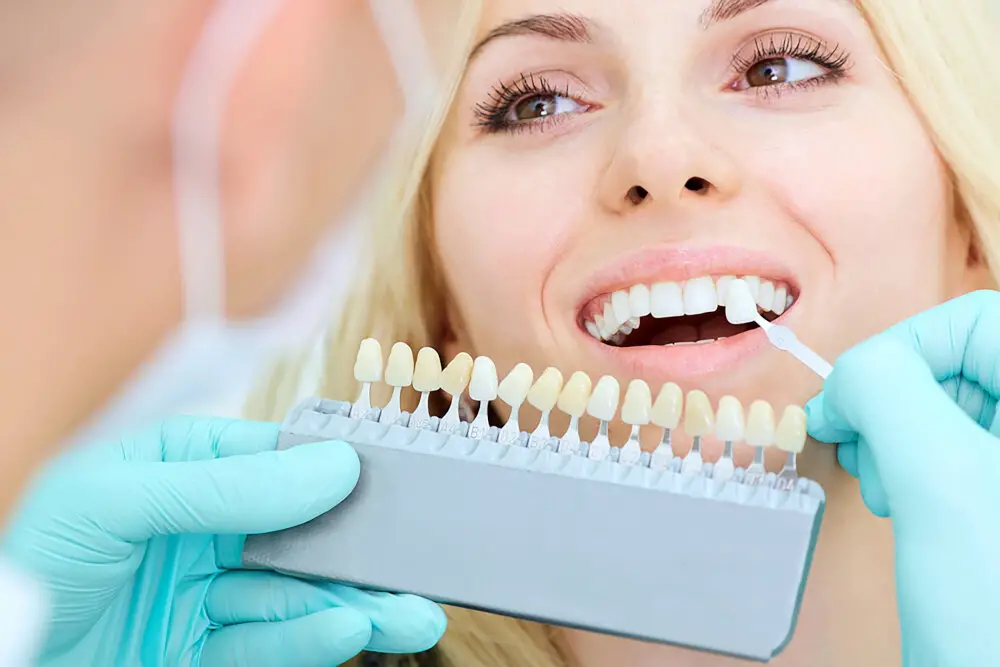
In conclusion, it is evident that methamphetamine use can cause severe dental problems, including decay, erosion, and tooth loss. The drug’s effects on the body and its ability to reduce saliva production and increase acidity in the mouth are the primary factors contributing to these issues. Furthermore, it is crucial to raise awareness about the dangers of methamphetamine use and its impact on oral health. Preventative measures, such as regular dental checkups and good oral hygiene practices, can help mitigate these effects. Ultimately, addressing the root cause of methamphetamine addiction and providing support for recovery is essential to protect individuals’ overall health and well-being.




